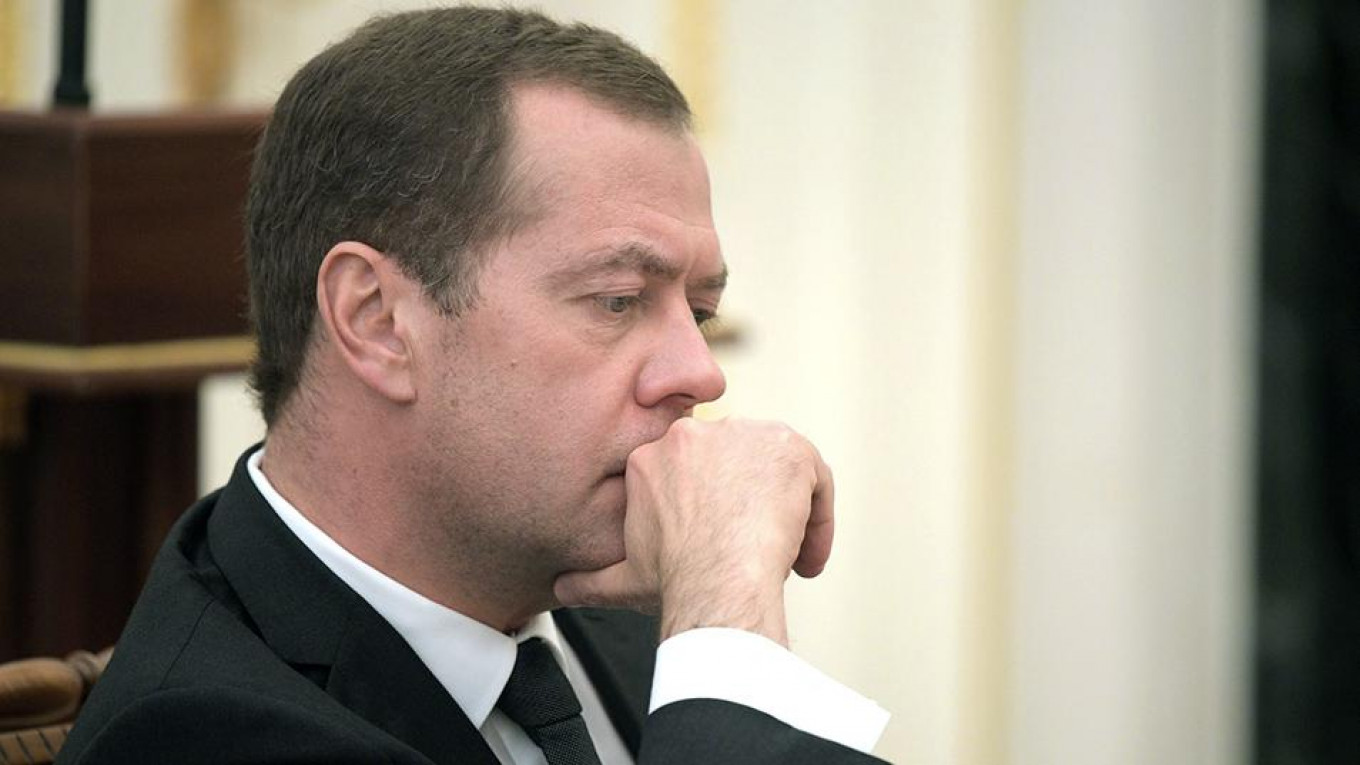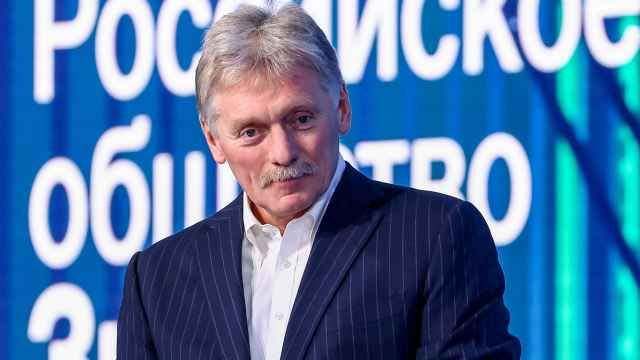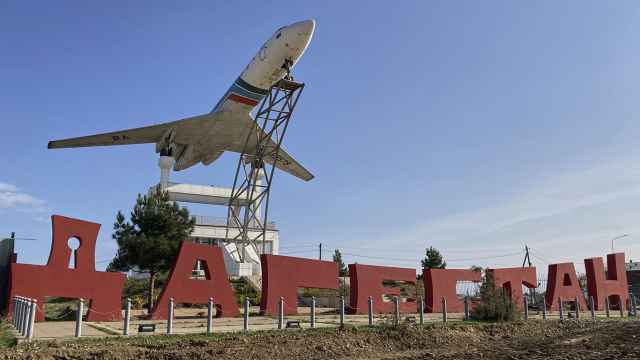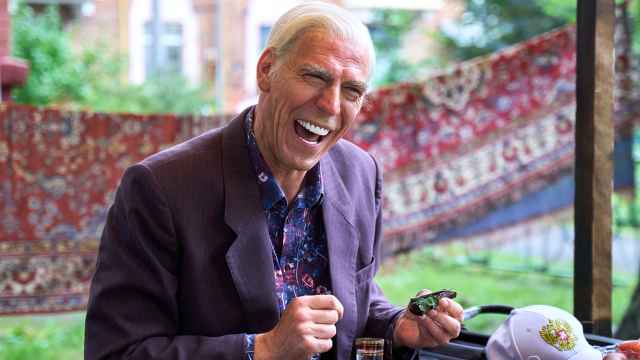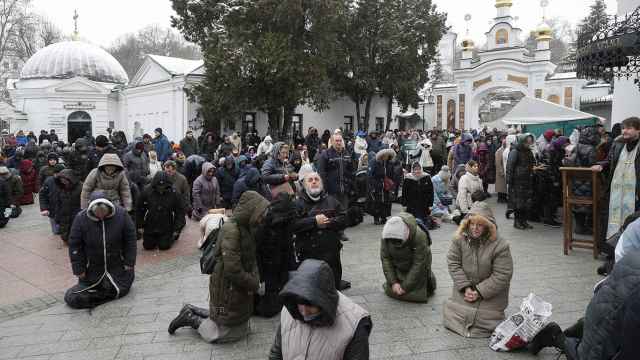Whoever is Russia’s prime minister after Putin’s inauguration will face at the very least, these five looming threats.
The first is parliament. In past years, the Kremlin gave the State Duma a “task” which the Duma then “revealed” in the form of a bill to be passed and handed over to the Federation Council. The upper chamber then almost always approved the bill so it could be signed by the president.
The tug-of-war between the government and parliament that exists in developed democracies is almost unheard of in Russia, where everything works within a single integrated system of subordination. The strength of that “unity” will be tested at the first sign of large-scale social tensions.
When socio-economic issues arise, the prime minister is vulnerable to attack from both the ruling party and the, for now, government-friendly parliamentary opposition.
The second threat is allegations of corruption. The grilling that Dmitry Medvedev got in the spring of 2017 by opposition leader Alexei Navalny was not an exception and the opposition’s investigations into abuse of power are likely to continue on a much larger scale.
There will probably not be a second “Crimea consensus” and support for the authorities will inevitably erode. The new prime minister and his ministers will be attractive targets for Kremlin critics who see exposing compromising information as a tool of influence.
The case against Alexei Ulyukayev illustrates the third threat. Even though the former economic minister was targeted for his specific conflict with oil giant Rosneft’s Igor Sechin, this does not mean other officials are safe.
The Ulyukayev case shows how easy it was for Sechin to ensure the downfall of a minister whose only “crime” was to take part in an unpleasant discussion of Rosneft’s right to purchase Bashneft. It is a classic case of a politically powerful player colliding with a weak administration.
A point of intrigue will be how the political heavyweights of the Putin era, like Sechin, relate to a technocratic and official power vertical that lacks political power.
The future prime minister and his Cabinet will hold the formal reins of power in their politically feeble hands, while real privileges and influence are held by “empowered” players whose actions often go far beyond the letter of the law. Against this backdrop, the intelligence agencies, which can eavesdrop on anyone at any time, will gain influence.
Unpopular reforms are the fourth threat the prime minister faces. Everything will depend on the availability and quantity of resources required for meeting the needs of the state. If money is short, there will be reforms. The future prime minister might have to assume responsibility for implementing unpopular decisions such as changes to the retirement age and flat tax rate, and healthcare reforms.
The fifth and last threat is administrative and political paralysis. In recent years, a weak government, the absence of political will and Putin’s preoccupation with geopolitical issues have deprived the Cabinet of energy and kept it from making important decisions. What decisions has Medvedev’s government made in the last six years? Only two come to mind: the implementation of the Platon payment system and the sale of Bashneft.
Under the inertia of the current situation, in which oil prices remain relatively stable and there are no looming cataclysms, the future Cabinet risks degenerating into little more than a think tank for the president’s administration, stripped of its ability to govern or take initiative.
But that is by no means the worst possible outcome. During Putin’s fourth —and final? — term, the head of the government will have little choice but to act cautiously, if at all.
The future prime minister will be one of Russia’s most vulnerable political figures of recent years.
Tatyana Stanovaya is a political scientist at the Center of Political Technologies. The views and opinions expressed in opinion pieces do not necessarily reflect the position of The Moscow Times.
This article first appeared in our special “Russia in 2018” print edition. For more in the series, click here.
A Message from The Moscow Times:
Dear readers,
We are facing unprecedented challenges. Russia's Prosecutor General's Office has designated The Moscow Times as an "undesirable" organization, criminalizing our work and putting our staff at risk of prosecution. This follows our earlier unjust labeling as a "foreign agent."
These actions are direct attempts to silence independent journalism in Russia. The authorities claim our work "discredits the decisions of the Russian leadership." We see things differently: we strive to provide accurate, unbiased reporting on Russia.
We, the journalists of The Moscow Times, refuse to be silenced. But to continue our work, we need your help.
Your support, no matter how small, makes a world of difference. If you can, please support us monthly starting from just $2. It's quick to set up, and every contribution makes a significant impact.
By supporting The Moscow Times, you're defending open, independent journalism in the face of repression. Thank you for standing with us.
Remind me later.



